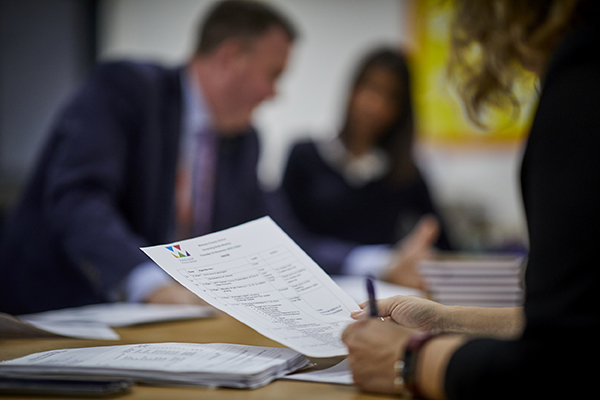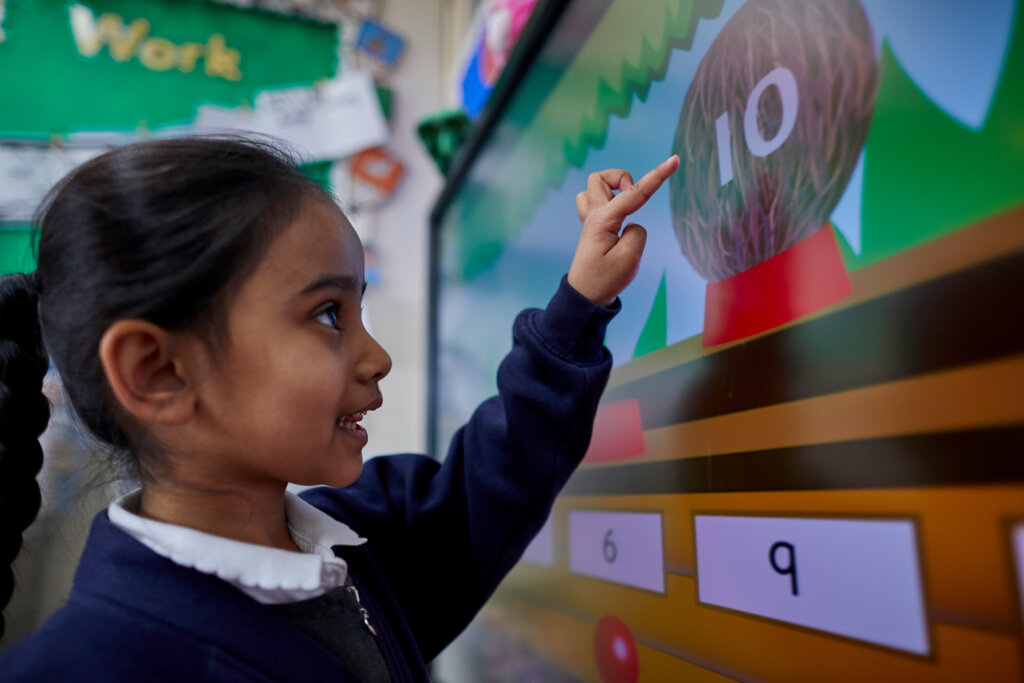£2 million funding to raise standards in reading and writing
The Department for Education (DfE) has announced £2 million investment to raise standards in reading and writing. £1 million will be available for secondary schools ‘with the greatest need’ to purchase reading programmes and other resources to support struggling readers. The other half will be spent on teacher training in both primary and secondary schools.
In primary schools, teachers will receive training through the English Hubs programme, which predominantly focuses on helping children to make progress in phonics from Reception and Year 1 to reading fluently by the time they leave primary school. With new funding, the programme will be expanded to support teachers to use evidence-based fluency strategies in Key Stage 2. Meanwhile, secondary school teachers will access training through a set of guidance and videos that focus on readers at all levels. Next year, the government will commission further training that focuses specifically on those who are at risk of falling behind.
The DfE also announced that a new writing framework will be published in the summer, setting out a common approach to teaching writing that is rooted in evidence and good practice. Currently, a third of children leave primary school without fundamental reading, writing and maths skills. This increases to over half for disadvantaged pupils. Education Secretary, Bridget Phillipson, says that while progress has been made, ‘now is the time to take that work to another level […] no child should leave school without a strong grasp of the basics.’
★ Our Literacy consultants hold a wealth of knowledge across the Literacy curriculum. We can deliver training, resources and subject leadership support to help you enhance the teaching of reading and writing. Get in touch to find out how we can support your school.
Government opens consultation on the use of reasonable force
The Department for Education (DfE) has launched a consultation on changes to the use of reasonable force guidance. The proposed changes state that schools will be legally required to record and report each significant incident involving the use of reasonable force. A significant incident is defined as ‘any incident where the use of reasonable force goes beyond appropriate physical contact between pupils and staff.’ The guidance states that incidents must be recorded by the staff members involved as soon as practicable after the event.
The use of reasonable force guidance was last published in 2013. The proposed changes follow reports that over a quarter of primary teachers and leaders have had to restrain a pupil during the first half of the 2024-25 autumn term. A TeacherTapp survey found that teachers were more likely to have restrained a pupil in a school serving a disadvantaged area (28%) whilst those working in more affluent communities were the least likely to have restrained a pupil (13%).
The guidance also states that staff who know individual pupils well should be utilised to ‘identify and manage risk when challenging behaviour is more likely to occur’ and develop proactive strategies to reduce the likelihood of reasonable force being used. The guidance warns that pupils with special educational needs or disabilities (SEND) may be particularly at risk of displaying harmful behaviours in response to certain triggers, such as pain, sensory overload, unfamiliar situations, or feelings of fear and anxiety. Therefore, schools are encouraged to understand the underlying triggers of challenging behaviour so they can create an inclusive environment and prevent pupils with SEND being disproportionately subject to the use of reasonable force.
There is no statutory expectation for schools to train staff, but the guidance encourages those who are most likely to require the use of reasonable force to be ‘adequately trained in its safe and lawful use.’ The consultation closes on 29 April 2025.
★ Our highly qualified professionals can deliver SEND and Behaviour Reviews, sharing practical advice and recommendations to help you embed a culture of inclusion across the whole school. Contact us to learn more.
Ofsted reveals plans for new inspection model and report cards
This week, Ofsted set out its plans for the new inspection model and report card system. His Majesty’s Chief Inspector, Sir Martyn Oliver, hopes this presents a ‘more balanced, fairer approach [that] will reduce the pressure on professionals working in education.’ The new report cards will judge schools on safeguarding and eight other areas, including leadership and governance, curriculum, developing teaching, achievement, behaviour and attitudes, attendance, personal development and wellbeing, and inclusion. Early years and sixth-forms will also have their own categories, which means one school could have 11 ratings in total. Ofsted will publish toolkits for each evaluation area, providing greater clarity on expected standards. Inspectors will no longer carry out deep dives and a greater emphasis will be placed on children’s outcomes instead.
Each area will be rated using a five-point, traffic light system. This will include ‘causing concern’ in red, where urgent action is required to provide a suitable standard of education. ‘Attention needed’ in amber signifies that some areas of provision are inconsistent, limited, or not meeting expectations. ‘Secure’ in light green suggests the school is securing a good standard of education. ‘Strong’ in green indicates that practice is consistently secure across different year groups and subjects. ‘Exemplary’ in dark green means that an area is consistently strong and there is a feature of practice that could be considered exemplary. Notably, inspectors can only recommend an exemplary rating. This will then be moderated and confirmed by a national quality and consistency panel.
From November, all inspections will be ‘full’ inspections – there will be no more ungraded inspections. All schools that are either ‘causing concern,’ or have any area graded ‘attention needed,’ will receive a monitoring inspection within 18 months. Ofsted will take into account the context that the school operates in and this information will be summarised within the report card, including the number of disadvantaged children and those with SEND, performance data, absence and attendance, and relevant characteristics of the local community.
Pepe Di’lasio, General Secretary of the Association of School and College Leaders (ASCL), says ‘Ofsted’s proposed school report cards appear to be even worse than the single-word judgements they replace.’ He explains the introduction of five new judgements which can be applied across at least eight evaluation areas ‘creates a set of hurdles which will be bewildering for teachers and leaders’ as well as for parents. A snap poll of 3,000 school leaders found that 92% disagreed with Ofsted’s proposals, with many expressing concerns that the new inspection model could increase workload and damage staff wellbeing. A consultation on the proposed changes will run until 28 April 2025.
One Education is passionate about raising standards in education through a process of continuous learning, innovation, and improvement.
Get in touch to learn about our training and consultancy services.
Please complete the form below and we will get in contact as soon as we can to help you with your query.












